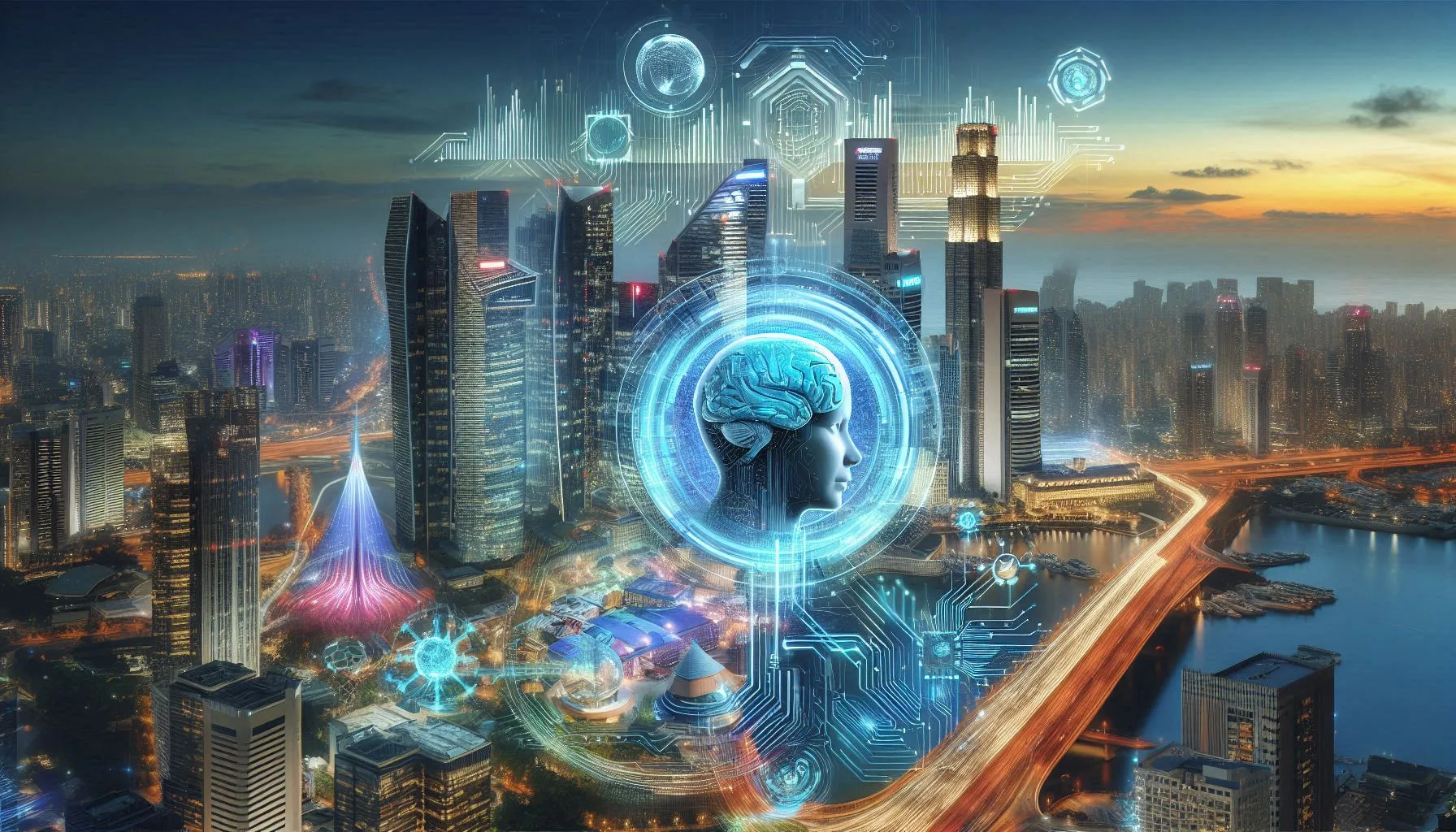As we step into 2024, the world of artificial intelligence (AI) and machine learning (ML) is evolving rapidly. Breakthroughs in generative AI, the development of sophisticated algorithms, and a strong focus on ethical AI have marked a new era. From reshaping healthcare to transforming education and optimizing finance, AI is proving to be a powerful force across industries. Let’s dive into the key AI and ML innovations of 2024 and their impact on various sectors.
1. Generative AI: Revolutionizing Creativity and Productivity
Generative AI is undoubtedly one of the most exciting advancements of the past few years, and in 2024, it’s continuing to make waves. Generative models like GPT-4 and DALL-E have paved the way for creating realistic text, images, and even videos based on given prompts. Here are some ways generative AI is pushing boundaries:
- Enhanced Creativity in Media and Marketing: Generative AI is being used to create immersive and interactive experiences. Companies are leveraging it to generate marketing content, personalized ads, and even virtual brand ambassadors. Learn more about how AI impacts marketing strategies (internal link).
- Personalized Learning and Tutoring: In education, generative AI is being used to develop customized learning materials, assessments, and interactive study guides. Virtual tutors powered by generative AI can answer questions, provide explanations, and offer real-time feedback to students.
- Advanced Language Translation: Generative models have enhanced language translation and interpretation capabilities, breaking down communication barriers across the globe. New developments in multilingual models mean translations are more nuanced and context-aware than ever before.
2. New Machine Learning Algorithms: The Path to Efficiency and Precision
The development of innovative machine learning algorithms has opened up new possibilities for AI. Here are some of the key advancements:
- Federated Learning: As privacy concerns grow, federated learning has become a significant breakthrough. This algorithmic approach allows AI models to learn from decentralized data sources without needing to store data in a central location, reducing privacy risks. Federated learning is crucial in fields like healthcare and finance, where data sensitivity is high. Read more on privacy-focused AI solutions (internal link).
- Transformers Beyond NLP: Transformers, initially used in natural language processing (NLP), are now applied to fields like computer vision, speech recognition, and genomics. The flexibility of transformers makes them highly adaptable, improving AI’s ability to understand context and structure across different types of data. An introduction to transformer models and their applications in AI (external link).
- Zero-Shot and Few-Shot Learning: These techniques allow models to generalize and perform tasks with limited or no labeled data. In 2024, zero-shot and few-shot learning are becoming integral to areas like medical imaging, where labeled data is scarce but the need for accuracy is high.
3. Ethical AI: Building Trustworthy and Transparent Systems
With the increasing power of AI, concerns around bias, transparency, and accountability have also grown. In response, ethical AI is a core focus in 2024, with companies and researchers prioritizing the creation of fair and responsible AI systems.
- Bias Mitigation Techniques: AI models can inadvertently learn biases present in data, leading to skewed results. New techniques help identify, measure, and reduce biases, ensuring AI systems make fairer decisions. Companies are also working on developing inclusive, diverse datasets. Explore the importance of diverse datasets in AI (internal link).
- Explainable AI (XAI): In fields like healthcare and finance, where decisions can have serious consequences, XAI enables users to understand how models arrive at their conclusions. This transparency helps build trust and ensures compliance with regulatory standards. The role of explainable AI in building trust in healthcare (internal link).
- Ethics-First Development Frameworks: Major tech companies are creating ethics-focused frameworks for AI development, assessing the social impact of AI projects before deployment. These frameworks include considerations for data privacy, accountability, and long-term social impacts. Read about responsible AI practices from Microsoft (external link).
4. Practical Applications of AI in Key Industries
AI and ML are transforming various industries in unique ways. Let’s explore some practical applications making a difference in 2024.
Healthcare: Precision Medicine and Diagnostics
AI has become a critical tool in healthcare, particularly in diagnostics and precision medicine. AI-powered diagnostic tools can analyze medical images with greater accuracy, assisting radiologists in identifying early signs of diseases like cancer. Predictive analytics are used to forecast patient outcomes, allowing for personalized treatment plans based on individual health data.
Generative AI models are also aiding drug discovery. Discover how AI speeds up drug discovery (external link), reducing R&D costs and timelines.
Education: Adaptive Learning and AI-Powered Tools
In education, AI is creating adaptive learning environments that cater to each student’s pace and style. ML algorithms analyze student performance data to identify learning gaps, enabling educators to offer targeted support. Learn how AI can transform learning environments (internal link).
Additionally, generative AI develops custom learning resources tailored to specific student needs. In higher education, AI simplifies tasks like grading and feedback, freeing teachers to focus on teaching.
Finance: Fraud Detection and Customer Service Automation
AI-driven fraud detection systems in finance are becoming more sophisticated, using ML to detect real-time anomalies and prevent fraudulent transactions. Algorithms analyze transaction data, behavior patterns, and geolocation info to flag suspicious activities with high accuracy.
AI is also transforming customer service in finance, with chatbots and virtual assistants answering customer inquiries and providing financial guidance. How AI is reshaping the finance sector (internal link).
5. The Road Ahead: AI and Machine Learning Beyond 2024
Looking beyond 2024, AI and ML will continue to advance, bringing more transformative possibilities. Researchers are exploring:
- Quantum AI: Integrating quantum computing with AI to exponentially speed up complex computations, particularly in fields like drug discovery, cryptography, and climate modeling. An overview of quantum AI advancements (external link).
- Self-Supervised Learning: This approach enhances applications in industries with data scarcity, allowing models to learn effectively from limited data.
- Human-AI Collaboration: Future AI systems will likely work alongside humans, aiding us in decision-making and boosting productivity.
Conclusion
The breakthroughs in AI and ML in 2024 underscore the technology’s potential to reshape industries and improve lives. From generative AI to ethical practices, AI is more than just a buzzword—it’s a powerful force driving change.
As AI and machine learning continue to evolve, we’re only scratching the surface of what’s possible. With advancements in algorithms, ethical practices, and real-world applications, 2024 is shaping up to be a landmark year in AI, setting the stage for a future where intelligent systems are seamlessly woven into our lives, making our world safer, more efficient, and interconnected.










